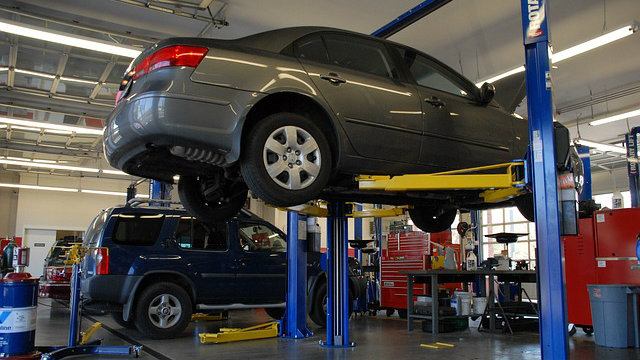AutoCanada Inc. (TSX:ACQ) is a Canadian automotive retailer with a portfolio of dealerships spanning eight Canadian provinces and 20 automotive brands. Perhaps one of the largest downstream automotive companies traded on the TSX, AutoCanada has seen its market capitalization decline from a peak of more than $2 billion in 2014 to just $500 million today.
Value investors looking at AutoCanada have watched shares continue to slide lower; many investors who’ve bought AutoCanada shares over the past two years have been bitten by this value trap trying to catch the falling knife at its bottom — a bottom which keeps falling out.
Given the changing landscape for the auto industry in North America, I’m going to take a look at why long-term investors may be best suited avoiding AutoCanada altogether and looking at other growth or defensive industries at this point in time.
Automotive industry headwinds remain strong
Among the numerous arguments that bearish analysts have conveyed about AutoCanada, perhaps the broadest and most pertinent claim is that the auto industry is at a point of inflection. The economy is changing from one in which every household is expected to own a house, two cars, a dog, and 2.5 children to one in which young families rent and take an Uber or public transit as needed, with most households limiting vehicle usage, purchasing a car only when absolutely necessary.
With increasing urban densification and ride-sharing taking over, car retailers that are reliant on the more traditional car ownership model are competing ever more intensely for a market share which remains relatively fixed. These increased levels of competition for a fixed pie have resulted in consolidation in the automotive retailing industry.
Acquisition model not resulting in positive free cash flow
One of the drivers of AutoCanada’s business model is its flow of acquisitions. The company recently announced an acquisition in the second quarter of the Montreal-based Mercedes-Benz Rive-Sud dealership chain, which brings the total number of dealerships under ownership to 57. While the company has continued to grow, its market share via its acquisition stream, revenue, and, more importantly, free cash flow has declined.
Last quarter’s numbers highlighted the softening of the Canadian automotive retail space, and specifically AutoCanada’s weakness compared with the industry. Broadly speaking, AutoCanada performed worse than its sector, experiencing a massive drop in free cash flow from $4.05 million in Q1 2016 to $0.62 million for the first quarter this year (excluding special items).
Bottom line
AutoCanada seems to get cheaper every day. Value investors looking for “cigarette butt” companies (those with one or two puffs left in them) have often pointed to AutoCanada as one of the legacy companies that may still have value moving forward.
It appears the market has begun to price in a risk premium for traditional automotive retailers relative to companies in high-growth sectors such as ride-sharing firms, which are anticipated to represent the future of the automotive industry. I remain convinced that, at this point, AutoCanada remains a value trap with significant long-term downside given the fact that industry fundamentals have only begun to change and will continue to do so for some time to come.
Stay Foolish, my friends.








